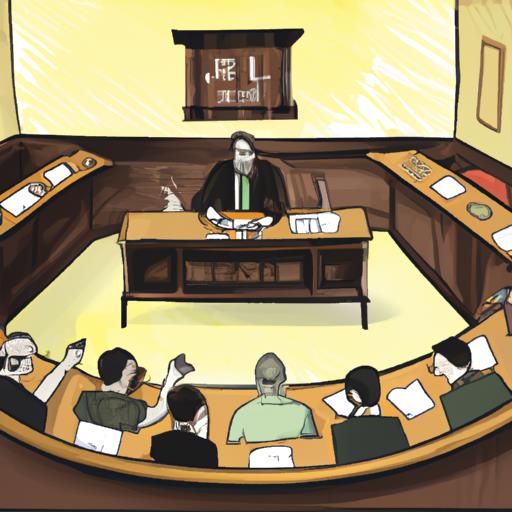Clash Over Juror Questions: US Government and Defense Spar in Bankman-Fried Fraud Case

Summary:
United States government and defense clash over proposed jury selection questions in the case against former FTX CEO, Sam Bankman-Fried, facing fraud and money laundering charges linked to a cryptocurrency exchange collapse. The government objects to certain questions as unnecessary and time-consuming, while defense argues for their relevance. Williams, U.S. Attorney, deems questions about pretrial publicity, effective altruism, political donations, and ADHD as excessive and prejudicial. Trial set to commence on Oct. 3.
The United States government has responded to queries raised by the defense regarding potential jurors' selection for the case against former FTX CEO, Sam Bankman-Fried, who is facing seven charges of fraud and money laundering. These charges are related to the collapse of a cryptocurrency exchange and could result in a lengthy prison sentence. On Sept. 11, both sides submitted their respective proposed questions to the court, revealing significant differences in their approaches for jury selection. In a letter to Judge Lewis Kaplan of the U.S. District Court for Southern New York, U.S. Attorney Damian Williams objected to certain questions put forth by the defense in four out of the 14 sections of voir dire, which is the process of questioning potential jurors. If approved, the defense's proposed voir dire could prolong the process due to the inclusion of unnecessary, time-consuming, and repetitive questions that could potentially influence the jury. Specifically, Williams objected to the questions in sections regarding pretrial publicity, the effective altruism philosophical movement, political donations and lobbying, and attention-deficit/hyperactivity disorder (ADHD). Williams argues that the pretrial publicity section has a weak legal foundation, while questions about effective altruism attempt to promote a specific defense narrative. Additionally, he deems questions about political donations and ADHD as irrelevant and prejudicial, despite Bankman-Fried's reported struggle with ADHD. On the other hand, the government's questions are considered standard, neutral, and appropriate by Williams. Both sides agree on questioning potential jurors about their attitudes towards cryptocurrency, with the defense including a question about assigning blame in the event of a failure by a company in the cryptocurrency or financial industry. Bankman-Fried has entered a plea of not guilty and his trial is scheduled to begin in New York on Oct. 3.
Published At
9/15/2023 9:52:51 PM
Disclaimer: Algoine does not endorse any content or product on this page. Readers should conduct their own research before taking any actions related to the asset, company, or any information in this article and assume full responsibility for their decisions. This article should not be considered as investment advice. Our news is prepared with AI support.
Do you suspect this content may be misleading, incomplete, or inappropriate in any way, requiring modification or removal?
We appreciate your report.